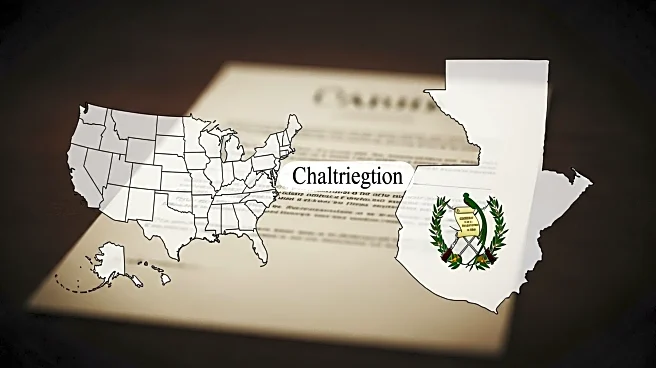What is the story about?
What's Happening?
The Trump administration is set to begin the repatriation of Guatemalan children in US government custody, according to a notice sent to attorneys. This move has prompted a scramble among lawyers who argue that the children, woken up in the middle of the night, are at risk if returned to their home country. The repatriation plan involves hundreds of unaccompanied Guatemalan minors, coordinated with the Guatemalan government. A federal judge temporarily blocked the removals early Sunday, although plans appeared to still be underway. Legal service providers were notified by the Office of Refugee Resettlement that Guatemala requested the return of certain unaccompanied alien children for reunification with suitable family members. The children identified for removal are believed to not have a parent in the US, though they may have relatives, and have a parent or legal guardian in Guatemala. Attorneys representing the children argue that they are at risk if returned and are in ongoing immigration proceedings.
Why It's Important?
This development is significant as it highlights the ongoing challenges and legal battles surrounding immigration policies in the United States. The repatriation of unaccompanied minors raises concerns about the safety and well-being of these children, particularly those who have experienced abuse or neglect in their home country. The legal challenge against the Trump administration's plan underscores the complexities of immigration law and the protections afforded to unaccompanied minors. The outcome of this case could have broader implications for US immigration policy and the treatment of migrant children in government custody. Stakeholders, including immigration attorneys and advocacy groups, are closely monitoring the situation, as it could set a precedent for future cases involving unaccompanied minors.
What's Next?
A hearing is set for Sunday afternoon, where Judge Sparkle L. Sooknanan will further address the case. The judge has ordered the US government not to remove any of the individual plaintiffs for two weeks. The legal proceedings will continue to unfold, with potential implications for the children involved and broader immigration policy. The Trump administration's response and any adjustments to the repatriation plan will be closely watched by legal experts and advocacy groups. The situation remains fluid, with possible interventions from the White House and relevant government departments.
Beyond the Headlines
The ethical and legal dimensions of repatriating unaccompanied minors are complex, involving considerations of child welfare, international relations, and human rights. The case highlights the tension between immigration enforcement and humanitarian concerns, as well as the role of the judiciary in safeguarding vulnerable populations. Long-term shifts in immigration policy could be influenced by the outcome of this case, affecting how the US handles similar situations in the future.
















